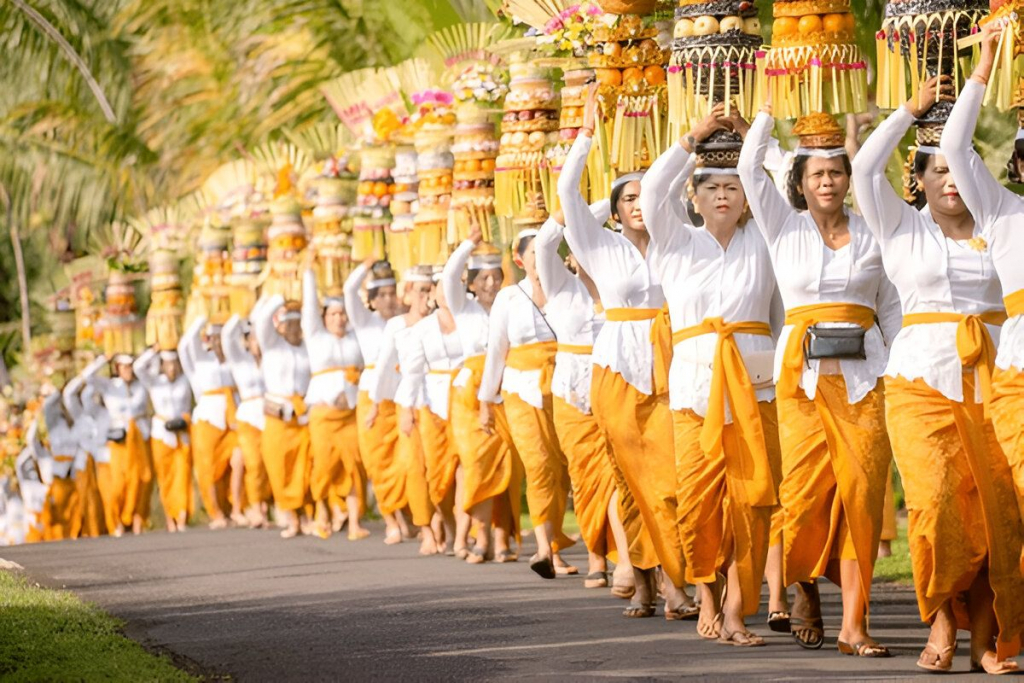Ubud, unlike many other parts of Bali, has found a way to preserve its identity while embracing modernity—an approach that holds valuable lessons for the entire island. Hey! I’m Jason, a Business Journalist at Bukit Vista, and today I will be uncovering the latest discussion on our Bali Business Review about Ubud’s role in Bali’s development. In this article, I’ll explore how Ubud’s leadership, rooted in tradition and guided by its monarchy, has shaped the region’s growth and how it can serve as a model for Bali’s sustainable future.
Ubud’s Unique Leadership and Cultural Preservation
Ubud stands out in Bali for its unique blend of leadership and cultural preservation. At the heart of Ubud’s development is its monarchy, which has long guided the area with a vision rooted in Balinese traditions. The King of Ubud, as a figurehead, plays a crucial role in shaping the region’s identity. The key to Ubud’s success lies in its ability to integrate outside influences while staying true to its cultural roots. This approach contrasts sharply with other areas in Bali, where a lack of leadership has led to fragmented development and the ‘bystander effect’—a phenomenon where multiple stakeholders fail to take responsibility, expecting someone else to lead.
This form of leadership, where the monarchy works closely with both the local community and foreign investors, ensures that development is not haphazard but instead guided by a vision that aligns with Ubud’s core values. The result is a community that welcomes outsiders without losing its cultural identity, preserving traditional arts and religious practices even as modernity makes its mark.
Balancing Modernization with Tradition in Ubud
The challenge of modernization in Bali often leads to cultural clashes, especially in areas like development and design. Many foreigners come to Bali with specific ideas about what should be built, often pushing for designs that align with Western aesthetics—like bland Mediterranean-style buildings—rather than incorporating Balinese values such as Tri Hita Karana, a principle of harmony among people, nature, and the divine.
In Ubud, however, the monarchy and local leaders have learned how to navigate this tension, balancing foreign ideas with Balinese spiritual values. The King of Ubud emphasizes that while modernization is inevitable, it should not come at the cost of losing traditional culture. Ubud’s success can be attributed to this delicate balance, where innovation is welcomed but always with respect for the past.
Leadership in Bali: Overcoming the Bystander Effect
Bali’s most significant challenge in development has been the lack of decisive leadership, often seen in other regions of the island. The ‘bystander effect’—where multiple parties defer to each other instead of taking initiative—has led to unsustainable growth patterns in many parts of Bali. This issue is especially prevalent in areas like Canggu, where developers and locals alike often look to the government for solutions, without taking responsibility themselves.
The King of Ubud highlights that leadership within communities is essential for ensuring sustainable growth. Instead of waiting for external authorities to take action, Ubud’s leaders have stepped up to shape development with a clear vision, ensuring that it aligns with both the needs of the local community and the cultural integrity of the area. This proactive leadership has been crucial in Ubud’s successful navigation of the complexities of modernization.
Cultural Transmission: A Role for the Village and Technology
As Bali continues to develop, the question of how to transmit culture to future generations becomes increasingly important. The King of Ubud believes that while technology plays a role in education and cultural dissemination, the village remains a critical space for passing down traditions. The wisdom of Bali’s culture must be protected from the overwhelming influence of global trends like social media and instant fame.
Critical thinking, mutual respect, and the preservation of spiritual practices are key to maintaining cultural integrity. Bali’s future generations will need to be educated not only in modern technologies but also in the wisdom of their ancestors. The village, with its focus on community and tradition, will continue to play an essential role in ensuring that Bali’s cultural heritage is not lost amid the forces of globalization.
Sustainable Development: A Vision for Bali’s Future

Bali’s future hinges on how the island can balance development with cultural preservation. The King of Ubud’s insights provide a roadmap for how this can be achieved. Sustainable development must involve leadership that guides growth in a way that respects local traditions while embracing the benefits of modernization. Through careful planning and collaboration, Bali can avoid the pitfalls of unchecked growth that have affected other parts of the island.
By learning from Ubud’s example, Bali can create a model for development that honors its unique culture and ensures that future generations inherit a vibrant, sustainable environment. Bali’s legacy of beauty and cultural richness can continue to thrive as long as there is a clear vision for the future—one that incorporates both tradition and innovation.
🗒️ Read the transcript
Topic 1: Introduction & Purpose of Ubud’s Development
Speaker 1: The conversation begins by addressing the common feeling of confusion in how to handle the development of Bali, particularly in dealing with foreign influence. Locals and foreigners alike often look to the government to take action, but the government is ultimately made up of the people. Ubud is highlighted as a place that has managed to navigate modern growth while preserving its identity through cultural practices and religious activities.
Topic 2: Ubud’s Leadership & the Role of the King
Speaker 1: Ubud’s growth has been significantly shaped by its monarchy. The King of Ubud, a central figure in guiding the local culture, has been an example of leadership in a place where leadership is often lacking. This contrasts with other parts of Bali where development is often driven by outside forces, leading to a lack of direction and the ‘bystander effect’—where no one takes charge because everyone expects someone else to lead.
Topic 3: Cultural Clashes & the Bystander Effect
Speaker 1: The bystander effect is discussed in relation to the development challenges faced in Bali. Many Balinese landowners look to Westerners or developers to lead the way, but neither side is equipped to take full responsibility. This often results in buildings that lack cultural integration, such as bland, white Mediterranean designs that ignore traditional Balinese principles like Tri Hita Karana.
Topic 4: Ubud’s Adaptive Culture & Monarchy Influence
Speaker 2 (King of Ubud): Ubud’s culture remains strong due to a balance between preserving tradition and adapting to modern influences. The King talks about the continuous integration of foreign influences while maintaining the core aspects of Balinese tradition. He stresses that the local community remains open to innovation while also being protective of their spiritual heritage.
Topic 5: The Role of Leadership in Balinese Development
Speaker 2 (King of Ubud): Leadership is essential to guide development in Bali. The King reflects on the importance of having a clear vision for development that honors the past while embracing modernity. Ubud’s success in navigating these challenges is attributed to having a figure who leads with both cultural understanding and strategic vision. This allows Ubud to remain an example of how to manage modernization and preserve identity.
Topic 6: Cultural Transmission & Wisdom for Future Generations
Speaker 2 (King of Ubud): The King emphasizes the importance of teaching future generations to value their culture and integrate modern elements carefully. He also discusses the role of technology and critical thinking in preserving wisdom. He believes that culture should be transmitted not only through Western institutions but also by maintaining strong village traditions that emphasize collective wisdom.
Topic 7: Conclusion & Reflection on Bali’s Future
Speaker 1: The discussion concludes with reflections on how Bali’s future development can be steered in a way that honors both its cultural heritage and the needs of modernization. There is a call for more sustainable growth that protects the integrity of Balinese culture, ensuring that the island remains a beautiful and inspiring destination for both locals and visitors.
Take the First Step to Joining Our Community, Book Your Seat at Our Round Table Talk Today!
At Bukit Vista, we believe in creating lasting partnerships that help nagivate your property to the top 1% in this competitive season. Join us to discover how we can work together.
